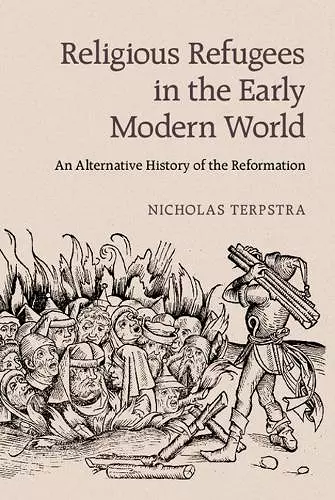Religious Refugees in the Early Modern World
An Alternative History of the Reformation
Format:Paperback
Publisher:Cambridge University Press
Published:23rd Jul '15
Currently unavailable, and unfortunately no date known when it will be back
This paperback is available in another edition too:
- Hardback£75.00(9781107024564)

This book examines the emergence of the religious refugee as a mass phenomenon from the fifteenth through the eighteenth centuries.
The religious refugee first emerged as a mass phenomenon in the late fifteenth century. Over the following two and a half centuries, millions of Jews, Muslims, and Christians were forced from their homes and into temporary or permanent exile. Their migrations across Europe and around the globe shaped the early modern world and profoundly affected literature, art, and culture. Economic and political factors drove many expulsions, but religion was the factor most commonly used to justify them. This was also the period of religious revival known as the Reformation. This book explores how reformers' ambitions to purify individuals and society fueled movements to purge ideas, objects, and people considered religiously alien or spiritually contagious. It aims to explain religious ideas and movements of the Reformation in nontechnical and comparative language.
'This enormously rich, thoughtful, and penetrating book offers a strikingly new perspective on the Reformation by probing its abiding obsession with purity, contagion, and purgation. These instincts, common to many faiths, were the stimulus to massive movements of populations, and in the process helped reshape both contemporary society and the European mind. If we want to know how massive human suffering can emerge from the best of intentions, we could do no better than start with this book.' Andrew Pettegree, University of St Andrews
'Through his grand themes of social purification and exile, Nicholas Terpstra gives us a daring new way to understand early modern times. He shows us with fascinating detail the similar processes at work among Catholics, Protestants, Muslims, and Jews. The world they reshaped speaks deeply to our own time.' Natalie Zemon Davis, Princeton University, New Jersey
'Terpstra's exciting new book offers a broad and compelling vision, a reinterpretation of the Reformation and of the early modern era generally. Covering a wide swathe of history in an imaginative, accessible way, it treats a phenomenon of enormous contemporary concern: projects in social purification and their massive consequences for humanity.' Benjamin J. Kaplan, University College London
'This exciting book puts purification, exile, and expulsion at the center of the story of the Reformation and early modern Europe. Terpstra offers a masterly synthesis and a bold, provocative, and timely thesis, which will stimulate and challenge scholars and students alike in a world beset by the plight of refugees.' Charles Zika, University of Melbourne
'By aiming to do this as an alternative history, Terpstra aims to make connections, and give new places, for a wider audience to start thinking about the Reformation and the early modern period. This book will be read and debated by many who are already familiar with the period and some of the key arguments; for them it will likely spark discussion about where we place the Reformation in relation to wider trends in the early modern period. For others, including undergraduate students, this should offer a thought-provoking introduction to the field, as Terpstra intended, and hopefully some new and interesting debates about both the early modern period and our own times.' Jameson Tucker, Reviews in History
ISBN: 9781107652415
Dimensions: 239mm x 163mm x 46mm
Weight: 590g
353 pages